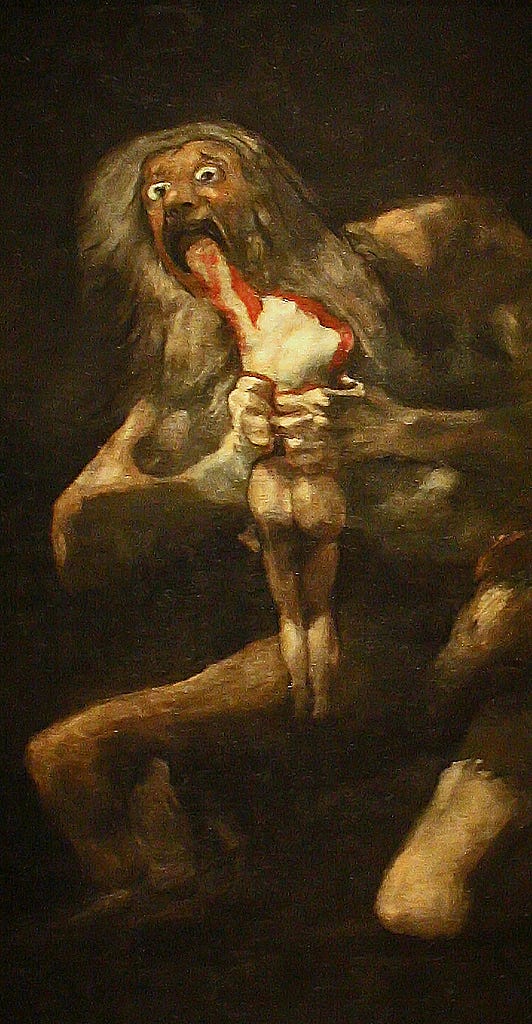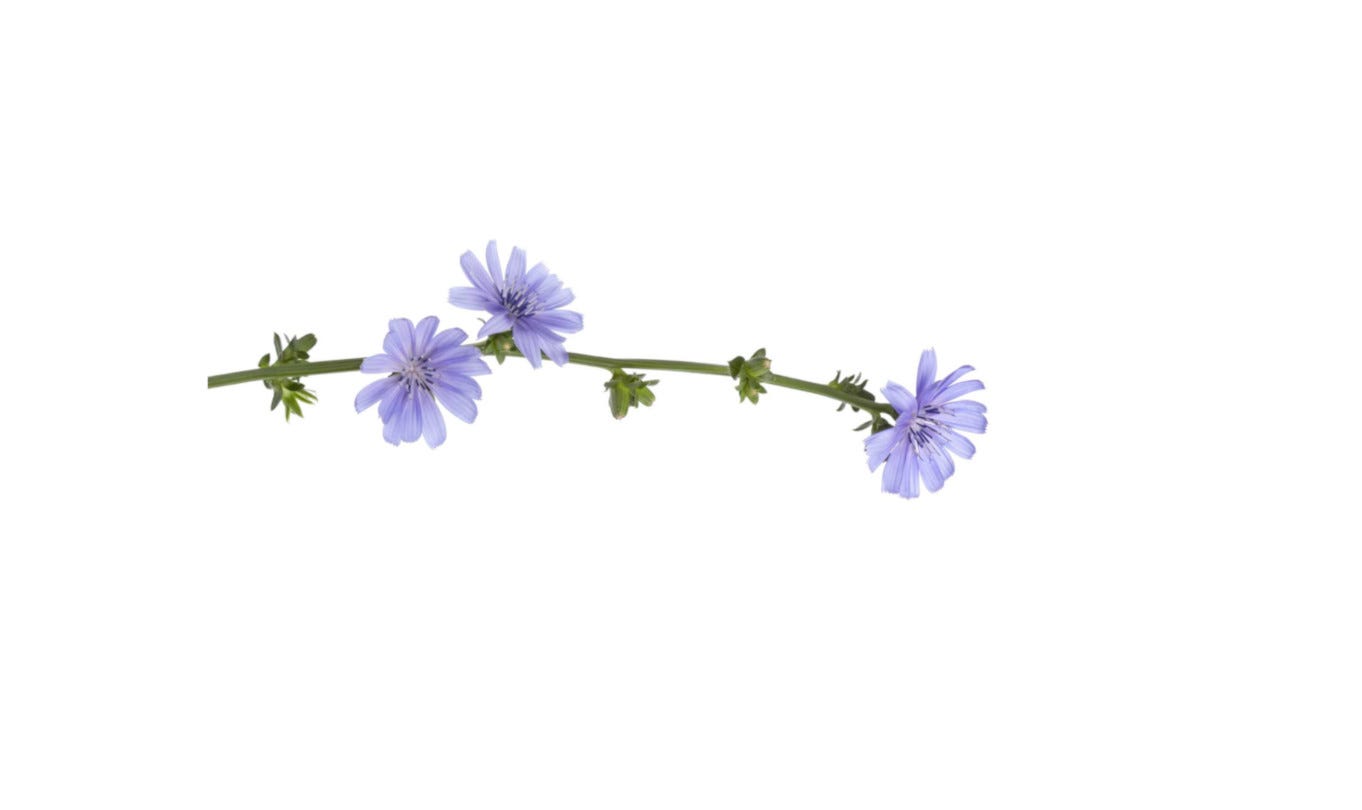I think it was the morning my solstice newsletter came out. The last weeks of spring had brought a heatwave. It was far too early for temperatures that high. I found them in the driveway. Our neighbors. They had been nesting where a broken gutter gave them access to a little nook in the eaves. One was freshly dead, the other already rotting. Clearly their parents had thrown them out this morning, desperate. I imagined the diligent starlings trying to revive the dead one for days, hoping it would open its eyes and take some food, while just next to it in the nest, its sibling struggled to hang on.
Loretta Sabine, the witch cat who takes great delight in imagining the gratuitous murder of birds, had marked this spring by spending uncounted hours in the kitchen window, whimpering and trembling with bloodlust every time the loving parents flew just in front of the glass to reach the entrance to their nook, food in beak. Their devotion was a part of our household, that last month. Quick streak of black beyond the pane. Shrill squawk of greeting, the guttural electric of starlings. Accompanying whimper, pure desire, of our little black cat. And Raechel and I, imagining babies well fed as we went about our day.
I moved their bodies into the grass so they wouldn’t be flattened by the tire of some unthinking car. The ants had already begun to consume them.
R and I have been paying a lot of attention to the wood duck families growing up on our little lake, wondering if the three mothers are the three chicks we saw grow up last spring. Crazy brave Angie and her siblings. (Or if one of the brood was a boy, maybe it’s two of last year’s chicks now mothering, plus their own mother laying a clutch for a second year). We tell them apart by how many chicks they have. Back in early June, a family of four chicks went down to three chicks. It was sad, but also a loss that was easier to make peace with. That little chick fed a hawk for a day or two. It’s something to be grateful for. After all, I’m not a vegetarian, and neither is the world.
The dead starlings, though… sure, those babies will be food for ants and bacteria. But the heat waves and all the deaths they bring, the high category hurricanes and the California wildfires this early in the summer. Do people know that it’s well over ten million (only counting humans) who are killed every year by the ecological crisis? Do they just absorb this a number?
(A lot of humans think that other animal parents don’t care for their children much. Since other animals can’t count, those with larger broods might not notice if one child goes missing. But you can see care, and recognize care, and those who assimilate deaths to numbers… I think it’s often a way to evade caring.)
The world will always find ways to feed itself, but there is nothing nourishing about those deaths, nothing natural about the turbulent changes they’re caused by.
How long will it be, until we start naming the killers?
Nearly everyone I know these days is mourning someone. A few deaths from old age, more from suicide, early cancers, war.
Last week I met with someone from my collective over coffee. Both of us deep in anxiety. The collective had a lot of responsibilities we were each trying to complete. The stress of it all put us at odds, the conflict became explicit. So we met. We spoke about life, and loss, and our tendency to do more work than we were able. And we left as friends, again.
It gave me some hope back. Our collectives need caring for. Where are we going to get care, in a world designed by mercenaries, if we don’t create the spaces for it, and the culture for it. How many collectives, how many affinity groups, have I been a part of, that were strangled by ego, fear of criticism, fear of mistakes. Brave enough to face prison, but not to face growth. Stupid fucking anarchists. I still have nightmares.
I’ve been wailing on my to-do list, ever since the last chemo cycle ended in early June. It’s felt so good, getting out from under the growing piles of tasks. Organizing my life more, setting out projects for myself. That’s a partial truth, and the lie in it is the drug of productivity. It feels good because it’s nice to have a healthy, clean nest, and to feel capable again. True. It also feels good because self-worth is tied to how much we produce. And I’ve been feeling awful. Sore joints, headaches, dizziness, bad sleep. It all made more sense after my blood test this week. A month has gone by, sure, but I’m still in it. Still have liver damage, still have a low white blood cell count, low red cells, low lymphocytes, low platelets. Some numbers are going back up, slowly. Others still going down, but slowly. It’s gonna take time. A lot of important things in this life move slowly.
So I’m trying to take it slowly. I failed yesterday, but boy did all that work feel good. So good I couldn’t get up early this morning, couldn’t walk to the lake, couldn’t see my goose friends (more on them another day). Didn’t hang out with a human friend who’s in a rough place.
Maybe I’ll cut this newsletter short. Leave a big ellipsis, a void of words and thoughts untended, and instead go hold someone, go call someone. Yeah. Maybe you can do the same.
I’ll leave a final question.

What are we going to do without care?
Eat years out of our future, so we don’t have to face our mistakes? Eat our own children to hold onto power, like the ones who rule this world?
When will it be okay to name our killers? When will we start talking about addresses? And will it be too late for us then? Will there be anything left to care for, besides revenge?





I cried over a dead baby deer this morning, and so appreciate this essay and its final questions. Sending a lot of love and solidarity your way!
Man, the final question is a harsh truth, but what really got me was this part:
Brave enough to face prison, but not to face growth. Stupid fucking anarchists. I still have nightmares.
We've done a lot of that too